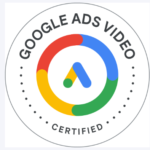
In today’s digital world, having a website is essential for any business or individual looking to establish an online presence. However, merely having a website is not enough; it needs to be discoverable by potential visitors and customers. This is where Search Engine Optimization (SEO) comes into play. SEO is the process of optimizing a website to rank higher in search engine results, ultimately attracting more organic traffic and increasing visibility. If you’re new to the world of SEO, fear not! This beginner’s guide will provide you with the fundamental knowledge needed to get started and unlock the power of SEO.
SEO is all about making your website search engine-friendly, ensuring that search engines like Google can understand and index its content. The primary goal is to appear on the first page of search results for relevant keywords, as the majority of users rarely go beyond this page.
Keywords Research
Keywords are the foundation of SEO. They are the words or phrases that users enter into search engines when looking for specific information or products. Conduct thorough keyword research to identify relevant and high-traffic keywords related to your content. Several tools, like Google Keyword Planner, SEMrush, and Ahrefs, can assist you in finding suitable keywords.
On-Page Optimization
On-page SEO involves optimizing individual pages on your website to improve their visibility and relevance to search engines. Key elements to focus on include:
- Title Tags: Craft descriptive and keyword-rich titles for each page.
- Meta Descriptions: Writing compelling meta descriptions that entice users to click on your link can generate huge increases in CTR.
- Headers: Use H1, H2, H3 tags to structure your content and make it easier for users and search engines to understand.
- URL Structure: Keep URLs concise and include relevant keywords. A popular practice is to use the heading tag in the URL.
- Content: Create high-quality, valuable, and engaging content that offers valuable information to the user. At the end of the day, Google wants to reward websites that are giving the best possible answer to the person performing the search.
Off-page Optimization
Off-page SEO refers to actions taken outside of your website to improve its visibility. The most significant factor in off-page SEO is link building. Gaining backlinks from reputable and authoritative websites signals to search engines that your content is valuable and trustworthy. Guest posting, social media promotion, and building relationships with other website owners are effective link-building strategies.
Mobile Optimization
With an increasing number of users accessing the internet through mobile devices, optimizing your website for mobile is crucial. Ensure your site is responsive and loads quickly on all devices to provide a positive user experience.
Site Speed
Site speed is also considered a ranking factor, as search engines prioritize delivering fast and efficient results to users. Optimize your website’s speed by compressing images, leveraging browser caching, and choosing a reliable hosting provider. We recommend implementing cloud hosting when available.
User Experience
User experience (UX) plays an important role in SEO. Search engines aim to provide the best results for their users, so websites with positive user experiences tend to rank higher. Focus on intuitive navigation, clear calls-to-action, and accessible design.
Regularly Update Content
Search engines prefer fresh and up-to-date content. Regularly update your website with new articles, blog posts, or product descriptions to keep it relevant and engaging for users.


